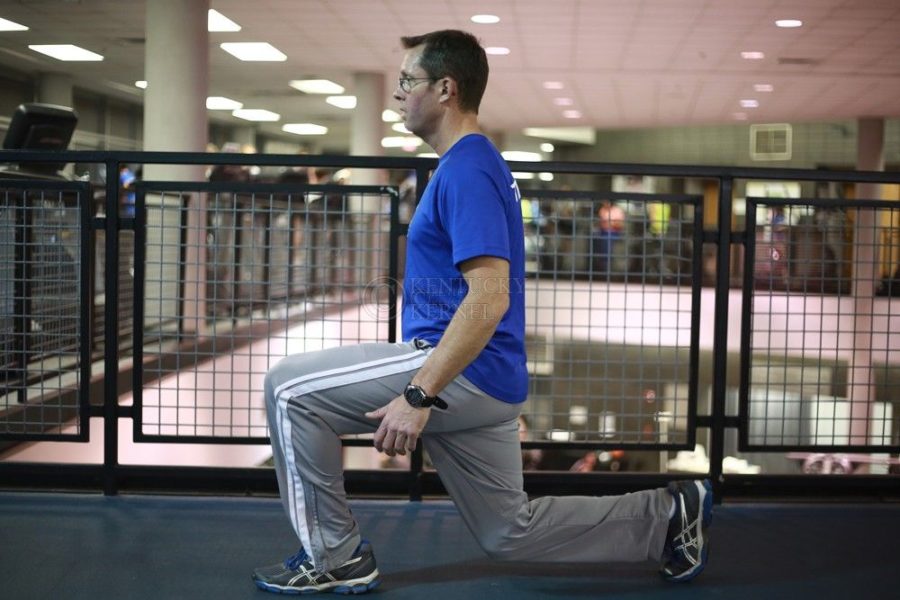Tips for managing stress in college
Senior Dietetics major Jon Nichols doing alternating lunges at the Johnson Center on Thursday, November 7, 2013, in Lexington, Ky. Photo by Kalyn Bradford
September 15, 2017
It’s no surprise that the ‘best four years of your life’ can also be the most stressful. Between social pressure, classes, exams and the need to take care of yourself, students often feel overwhelmed, frustrated and anxious.
Aside from campus resources such as the UK Counseling Center, there are a few ways students can manage their stress or relieve stress they are already feeling.
Setting aside specific times for work and school and others for relaxation and self-care is a great first step toward managing stress. With a clear division between when obligations are being dealt with and when you are your number one priority, students can feel more in control of the world around them.
Having someone to talk to about problems and worries is crucial for managing stress. It may be some’s natural inclination to recede and internalize their stress, but negative emotions have to be released somehow. Having a close friend to vent to and get advice from is imperative in having good mental health.
Having goals and tasks that are not work or school related is a good way to focus energy without adding to stress. Hobbies such as running, working out, or even DIY Pinterest projects all work well. An outlet that does not relate to or contribute to stressors can make the difference in a breakdown and a productive break.
Distance is another way to manage the pressure of college. Taking a weekend to get away to a place where you feel separated from triggers allows students to take a step back. Whether your ‘happy place’ is home, a friend’s place, the lake, or simply a coffee shop off campus, it’s easier to deal with your stress when you’re not surrounded by it. However, there is a thin line between distancing yourself from stress and avoiding problems, so be careful.
If physical distance is not an option, students can still find ways to ‘clock out.’ For example, music can be an excellent escape. Never be ashamed to take a day to stay in bed with some snacks and a pair of headphones. When you get up, you’ll be better equipped to tackle the tasks at hand.
There are many ways to handle stress, but students should maintain a healthy level of self-awareness in order to determine what levels of stress are manageable independently and when professional help is required. There is no shame in whatever way you choose to manage stress, and there is absolutely no shame in seeing a counselor or therapist. Students’ health should be their main concern.
































































































































































